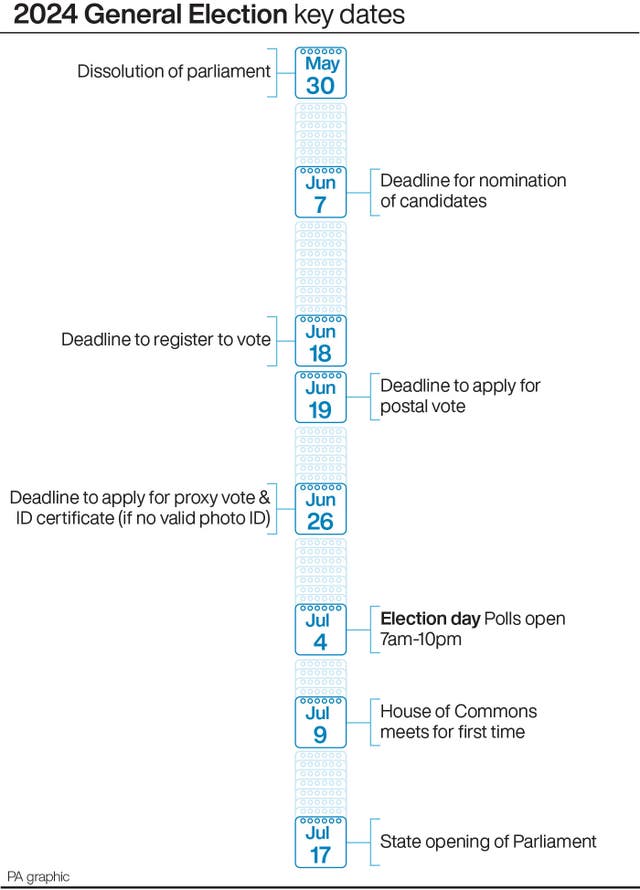Scottish Labour is on course to win up to 25 UK parliamentary seats in the General Election, according to a poll.
The survey by More In Common showed the Labour Party started the election campaign with a five-point lead over the SNP.
Labour polled at 35%, with the SNP at 30%, the Conservatives at 17%, the Liberal Democrats at 10%, Reform UK at 4% and the Greens at 3%.
More in Common polled a nationally representative sample of 1,016 Scottish voters between May 22 and 24.

The survey found voters north of the border are more likely than Britain overall to say it is time for a change in leadership.
While 70% of UK voters said it was time for a change, the number was nine points higher in Scotland.
In other results Labour was found to have an approval rating of minus five, the Liberal Democrats had minus 16, the SNP had minus 21 and the Conservatives came in at minus 49.
SNP chief John Swinney was found to have the highest approval rating among party leaders at minus two, with the Labour Party’s Sir Keir Starmer on minus 10, Anas Sarwar (Scottish Labour) on minus 11 and Tory Rishi Sunak on minus 43.
Voters considered Mr Swinney an improvement on his predecessor Humza Yousaf, with 34% saying he was better, 5% believing he was a downgrade, 37% saying he was no better or worse and the rest indicating they were unsure.
Luke Tryl, executive director of More in Common UK, said: “The time for change mood has upended the electoral landscape in Scotland, with Labour currently on course to make major gains at the expense of the SNP.
“While there is no doubt that John Swinney is more popular than his predecessor, the SNP’s brand has been severely damaged by perceived legislative failures, scandals surrounding the former first minister Nicola Sturgeon and the collapse of the Yousaf administration.
“What’s happening in Scotland will have reverberations across the UK, if Labour does make these levels of gains in seats north of the border it makes the path to a majority in Westminster substantially easier.”
You may also like: Green Party now ‘second-most popular option’ for voters under 40 – YouGov

